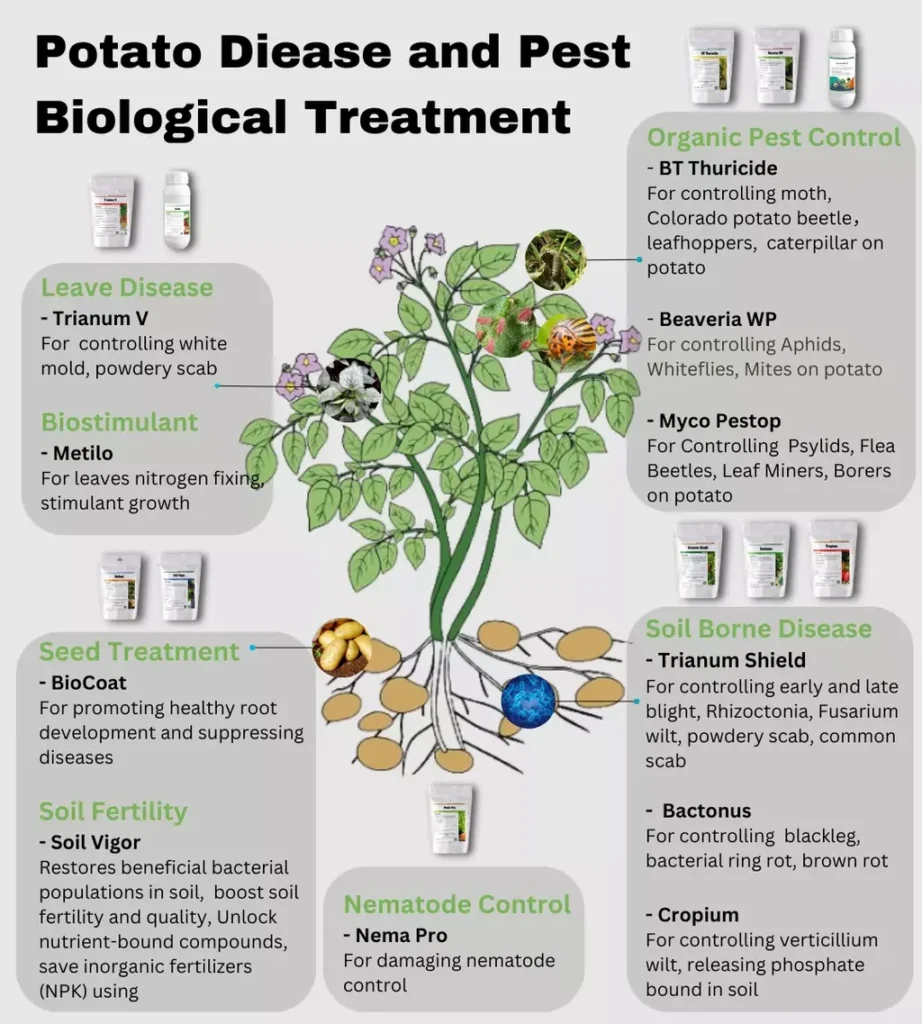In the vast fields of potato cultivation, a silent battle rages on—one that pits the humble potato plant against a dual onslaught of viral infections and leaf-eating pests. Recent research published in the journal ‘Овощи России’ (translated to English as ‘Vegetables of Russia’) sheds light on the intricate dance between plant viruses and the immune responses of potato plants, offering insights that could revolutionize agricultural practices and potentially impact the energy sector.
Dr. О. A. Sobko, a leading researcher at the Federal State Budget Scientific Institution “Federal Scientific Center of Agricultural Biotechnology of the Far East named after A.K. Chaiki,” has been at the forefront of this investigation. The study, conducted over three years from 2020 to 2023, involved a diverse array of potato varieties, both Russian and foreign, to understand the interplay between viral infections and the plants’ susceptibility to the potato ladybird beetle, a notorious leaf-eating pest.
The findings are both intriguing and alarming. Sobko and her team discovered a direct correlation between the accumulation of viral infections and a decrease in the immune response of potato plants to leaf-eating insects. “Initially, we observed that varieties like Svitanok Kievskii, Nakra, Dal’nevostochnyi, and Severnyi showed minimal viral infection and were not susceptible to the potato ladybird beetle,” Sobko explained. “However, as the viral infection progressed, particularly in the second year of the experiment, we saw a significant decline in the plants’ ability to fend off these pests.”
The implications of this research are far-reaching. For the agricultural sector, understanding this dynamic could lead to the development of more resilient potato varieties that are less susceptible to both viral infections and pest damage. This could translate to higher yields and reduced reliance on chemical pesticides, which are not only costly but also have environmental impacts.
But the potential impact doesn’t stop at the farm gate. The energy sector, particularly bioenergy, could also benefit from these findings. Potatoes are a valuable source of biofuel, and ensuring a steady, high-quality supply is crucial for the industry. By minimizing crop losses due to pests and diseases, farmers can contribute to a more stable and sustainable biofuel production chain.
Sobko’s research also highlights the importance of regular renewal of planting material to prevent the accumulation of viral infections. This practice could be a game-changer for farmers, offering a simple yet effective strategy to protect their crops.
As we look to the future, the findings from this study open up new avenues for research and development. The interplay between plant viruses and immune responses is a complex one, and further studies could uncover even more strategies to enhance crop resilience. For now, Sobko’s work serves as a beacon, guiding us towards a more sustainable and productive agricultural future.
In the words of Sobko, “This research is just the beginning. The more we understand about these interactions, the better equipped we will be to protect our crops and ensure food security for generations to come.” And with that, the battle in the potato fields continues, armed now with new knowledge and hope for the future.

